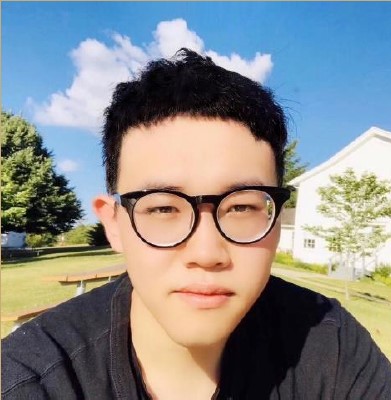Towards Next-Generation Wireless Networks: Light Perspective
Towards Next-Generation Wireless Networks: Light Perspective
Wireless networks are now an essential and integral part of modern life, seamlessly woven into the fabric of people’s daily routines. The traditional radio based wireless approach suffers from three major drawbacks: (1) RF communication relies on limited spectrum resources, leading to congestion and interference. (2) Traditional RF devices often consume significant energy, especially on mobile devices. (3) RF communication has security risks like eavesdropping and interference. In recent years, there has been a proliferation of low-cost and energy-efficient LEDs and cameras deployed ubiquitously. This trend opens up the exciting possibility of leveraging light for next-generation wireless networks.
In this talk, I will share three key findings from my research in optical wireless communication, highlighting its potential applications in localization and sensing through machine learning. Firstly, I will introduce a novel framework LiFOD that leverages side-channels to enhance indoor LiFi with smooth dimming. Secondly, I will showcase U-Star, a cost-effective self-served underwater navigation system featuring self-illuminating 3D tags. Lastly, I will demonstrate RoFin, an optical camera communication-based digital health approach for human-computer interaction for individuals with Parkinson’s disorder. These findings contribute to the development of next-generation wireless networks, emphasizing human-centered, environmentally friendly and secure communication coupled with accurate location awareness. I will conclude by outlining my long-term vision for next-generation wireless networks, incorporating a multidimensional approach that integrates communication, cognition/control, and computation.
Date and Time
Location
Hosts
Registration
-
 Add Event to Calendar
Add Event to Calendar
Loading virtual attendance info...
- 118 Library Drive
- Rochester, Michigan
- United States 48326
- Building: Dodge Hall
- Room Number: Room 135
- Click here for Map
Speakers
 Xiao Zhang of Duke University, NSF Athena
Xiao Zhang of Duke University, NSF Athena
Towards Next-Generation Wireless Networks: Light Perspective
Wireless networks are now an essential and integral part of modern life, seamlessly woven into the fabric of people’s daily routines. The traditional radio based wireless approach suffers from three major drawbacks: (1) RF communication relies on limited spectrum resources, leading to congestion and interference. (2) Traditional RF devices often consume significant energy, especially on mobile devices. (3) RF communication has security risks like eavesdropping and interference. In recent years, there has been a proliferation of low-cost and energy-efficient LEDs and cameras deployed ubiquitously. This trend opens up the exciting possibility of leveraging light for next-generation wireless networks.
In this talk, I will share three key findings from my research in optical wireless communication, highlighting its potential applications in localization and sensing through machine learning. Firstly, I will introduce a novel framework LiFOD that leverages side-channels to enhance indoor LiFi with smooth dimming. Secondly, I will showcase U-Star, a cost-effective self-served underwater navigation system featuring self-illuminating 3D tags. Lastly, I will demonstrate RoFin, an optical camera communication-based digital health approach for human-computer interaction for individuals with Parkinson’s disorder. These findings contribute to the development of next-generation wireless networks, emphasizing human-centered, environmentally friendly and secure communication coupled with accurate location awareness. I will conclude by outlining my long-term vision for next-generation wireless networks, incorporating a multidimensional approach that integrates communication, cognition/control, and computation.
Biography:
Xiao Zhang is a postdoctoral associate at Duke University and NSF Athena. Dr. Zhang received his Ph.D. degree of Computer Science from Michigan State University in August of 2023. Dr. Zhang’s research interests are next-generation wireless networks (optical, mmWave), AI-assisted sensing/localization, mobile computing, AIoT, Cyber Physical Systems, and HCI. His work was published at top-tier venues of mobile computing and IoT community including MobiCom, MobiSys, Ubicomp, SenSys, SECON, IWQoS, CoNEXT, ICNP, IoTJ, WoWMoM, MASS, CSUR, GLOBECOM, ToSN, etc
https://xiaozhangmsu.github.io/#home
Agenda
11:00 AM Start of talk
12:00 PM Conclusions
Oakland University CSE Research Talk
Media
| OU CSE Resrach Talk - Xiao Zhang | OU CSE Resrach Talk - Xiao Zhang FLYER | 203.60 KiB |

